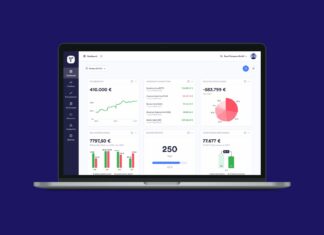According to several media reports, the Axel Springer Group will pay one billion US dollars for the acquisition of Politico. German observers talk about an “unheard-of” price. No question: Springer is spending a lot of money for this acquisition. But for CEO Mathias Döpfner, the company’s value lies not only in journalism.
Business journalists in the U.S. are waging their own price war: Almost every reporter covering Axel Springer’s takeover of Politico claims to have found a source who knows the value of the deal. Wall Street Journal, Washington Post, New York Times, Financial Times mention the price of about one billion US dollars, some want to have heard a lower one.
Springer CEO Mathias Döpfner does not talk about figures. Perhaps because the sum is really so astronomically high, or to make the company seem worth so much, at least at this moment. Possibly also because it’s not so much about the money. While observers like the media editors at Der Spiegel only recognize an “almost unheard-of price”, Döpfner is buying more than “a handful of newsletters”. For Axel Springer, the value of the company lies not only in journalism.
Springer buys credibility
Skeptics feared the sellout of journalism after the entry of U.S. investor KKR. The company’s withdrawal from large parts of Eastern Europe (where Döpfner still appeared combative after the murder of Slovakian journalist Ján Kuciak) recently confirmed their fears. The fact that Springer is now investing this money, as well as liquid assets from the partial sale of the French Classified business, in journalism is not likely to silence these skeptics, but it will probably appease them. Journalism still has a meaning at Springer.
Springer buys growth opportunities
The Group is not investing to consolidate or create synergies. Politico is a profitable company that is growing on its own and has further potential. For example, the “handful of newsletters” can be expanded to include other subject areas. In addition, Döpfner can implement his further expansion scenarios with Politico. “We want to become the leading digital publisher in the Western world,” he told the WSJ, referring to the group. That works out through more acquisitions, or as the Financial Times writes: by expanding the Politicoconcept into more markets. This seems even more possible with the international Politico brand than with Axios, which is currently focusing on regionalizing its model.
Springer buys respect
If observers in 2017 were still declaring Mathias Döpfner insane and raising their eyebrows when Springer invested $340 million in Business Insider, today they are scrunching up their eyes in concentration. For Döpfner, the Insider Group has become something like the American tabloid Bild. Surprising, colorful, with a wide reach. Above all, Insider is worth five times as much today as it was then.
With Politico, Döpfner is now adding seriousness and quality to the portfolio. Politico is not like Insider, Buzzfeed or Huffpost. It is more like WashPost, New York Times or Financial Times — only with fewer transformation pains. Axel Springer is now being taken more seriously as a competitor.
Springer buys influence
Probably the biggest non-journalistic asset of the deal is the hearing and the impact that Springer buys with Politico. Among policymakers and lobbyists in Washington, D.C. the medium is a must read, and people spend several thousand U.S. dollars a year on a subscription.
Politico has influence. That applies not only to its journalists, but also to the minds behind the editorial team. Mathias Döpfner knows that. The manager not only acts entrepreneurially, but also politically, as his involvement in the German Publishers Union, but also in Brussels, makes clear. Politico gives Springer access to the Senate, Congress and the White House. Of course, he won’t be able to dictate anything to politicians, but he will be able to present his views on media policy — especially on Google — at one point or another.
Brian Morrissey, media analyst and editor of The Rebooting, sums it up for Medieninsider: “People love power, so owning Politico helps.” Springer seems to especially benefit from that. „A weird part of covering Springer over the years is it’s view of itself didn’t line up with its fairly low profile outside Germany and various European markets.“





